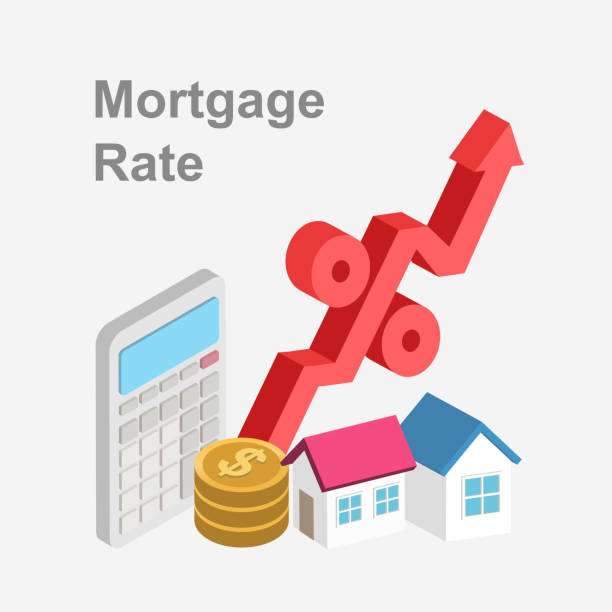
Visits: 1
Looking to buy a house or refinance your mortgage? One of the most important factors to consider is the current mortgage interest rates. In this blog post, we’ll explore what mortgage interest rates are at the moment and how they’re determined. We’ll also delve into the various factors that affect mortgage interest rates and provide tips for securing favorable rates. Whether you’re a first-time homebuyer or a seasoned homeowner, understanding mortgage interest rates can help you make informed decisions about your finances. So, let’s dive in!
1. Introduction: Understanding Mortgage Interest Rates
Mortgage interest rates are a critical factor when it comes to buying a home. Understanding how these rates work is essential if you want to make informed decisions about your mortgage. Mortgage interest rates refer to the percentage of the loan amount that lenders charge borrowers for borrowing money. These rates can vary depending on several factors, including market conditions, economic indicators, and individual borrower circumstances. In this article, we will explore current trends in mortgage interest rates, factors affecting them, and tips for securing favorable rates. By the end of this article, you should have a better understanding of how mortgage interest rates work and what you can do to secure the best possible rate for your mortgage.
2. Current Trends in Mortgage Interest Rates
Over the past few years, mortgage interest rates have been fluctuating significantly. In 2018, rates were on the rise, reaching a peak of around 5% for a 30-year fixed-rate mortgage. However, in 2019 and 2020, rates began to drop, hitting historic lows due to the economic impact of the COVID-19 pandemic. As of August 2021, the average interest rate for a 30-year fixed-rate mortgage is around 3%, which is still relatively low compared to previous years.
It’s worth noting that mortgage interest rates are influenced by various factors, including inflation, economic growth, and government policies. For instance, when the economy is doing well, interest rates tend to increase as people have more money to spend and invest. Conversely, during times of economic uncertainty, such as the COVID-19 pandemic, interest rates may decrease as the government tries to stimulate spending and borrowing.
In addition to these broader trends, mortgage interest rates can also vary depending on the type of loan you’re applying for, your credit score, and the lender you choose. For example, adjustable-rate mortgages (ARMs) typically have lower initial interest rates than fixed-rate mortgages, but they can also be riskier as the interest rate can change over time. Similarly, borrowers with higher credit scores may qualify for lower interest rates than those with lower scores.
Overall, it’s important to keep an eye on current trends in mortgage interest rates and understand the various factors that can affect them. By staying informed and working with a reputable lender, you can increase your chances of securing a favorable interest rate for your mortgage.
3. Factors Affecting Mortgage Interest Rates
Mortgage interest rates are influenced by a variety of factors that can cause them to fluctuate. One of the primary factors is the state of the economy. When the economy is strong, interest rates tend to rise, and when it’s weak, they tend to fall. This is because lenders want to make sure they’re compensated for the risk of lending money during uncertain times.
Another factor that affects mortgage interest rates is inflation. When inflation is high, lenders may increase interest rates to protect themselves from losing money due to the decreased value of the dollar over time. On the other hand, when inflation is low, lenders may reduce interest rates to encourage borrowing and stimulate economic growth.
The Federal Reserve also plays a significant role in determining mortgage interest rates. The Fed sets the federal funds rate, which is the interest rate at which banks lend money to each other overnight. Changes in this rate can affect mortgage interest rates, as lenders may adjust their rates based on the cost of borrowing money from other banks.
Finally, individual factors such as credit score, down payment amount, and loan term can also impact mortgage interest rates. Borrowers with higher credit scores and larger down payments are typically seen as less risky and may qualify for lower interest rates. Additionally, shorter loan terms often come with lower interest rates than longer terms.
Understanding these various factors can help borrowers make informed decisions when shopping for a mortgage and negotiating interest rates with lenders.
4. Tips for Securing Favorable Mortgage Interest Rates
When it comes to securing favorable mortgage interest rates, there are several tips that you can follow. Firstly, it’s important to maintain a good credit score as this plays a significant role in determining the interest rate you’ll be offered. Make sure to pay your bills on time and avoid taking on too much debt.
Another tip is to save up for a larger down payment. The more money you put down upfront, the lower your interest rate will be. This is because lenders see borrowers with larger down payments as less risky.
You can also consider working with a mortgage broker who can help you find the best rates and terms based on your financial situation. They have access to a wide range of lenders and can negotiate on your behalf to get you the best deal possible.
Finally, don’t be afraid to shop around and compare rates from different lenders. You may be surprised at the difference in rates and fees between lenders, so it’s important to do your research and make an informed decision.
Wrapping Up
By following these tips, you can increase your chances of securing a favorable mortgage interest rate and save thousands of dollars over the life of your loan.


%20(1).png)


